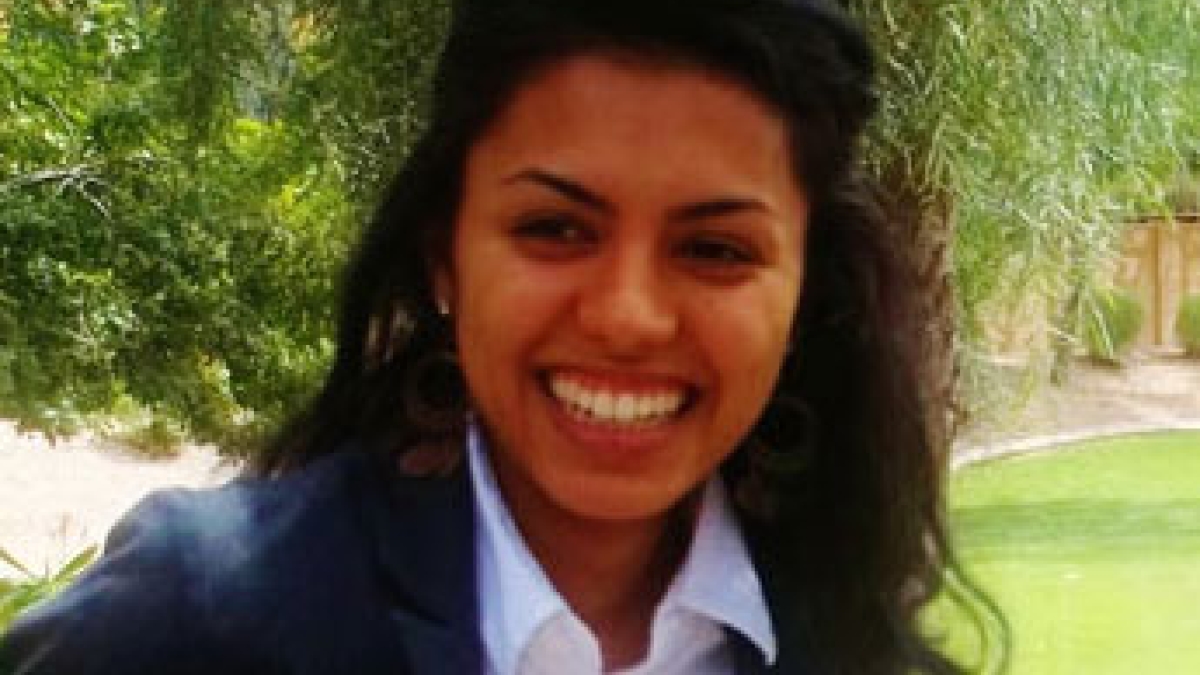Student aims to start school for underprivileged girls

Pooja Raghani has experienced firsthand the difference that education can make in a girl’s life.
As an aspiring physician, Raghani is studying biochemistry at Arizona State University and will apply to medical schools in the fall. Her life is a stark contrast to that of many underprivileged girls and young women in India who are valued more for their household skills than their brains.
“With friends in India, I've mostly seen early marriage as the fate of many girls without an education. Girls are valued more as wives to complete household chores rather than as educated daughters,” she said. “Education grants individuality and I find that girls without an education have this sense of resignation or apathy to their current situation.”
Raghani, who is from Mesa, Ariz., would like to be an agent of change to improve the lives of underprivileged girls in India by starting a school for girls as part of the Intel for Change program. Raghani is a finalist to join Intel for Change, a competition that gives women the opportunity to spend 10 days in Kenya, India or Ecuador to learn about the barriers to education that girls face in these countries, and to share this information with their communities upon their return.
“Education provides empowerment. An empowered female is more likely to educate her children, ending the cycle of illiteracy in one generation,” she said. “Girls gain self-confidence and a voice that allows them to be more productive in their societies as well as exercise their fundamental human rights. Educated girls also contribute to their economies, increasing entrepreneurship and, ultimately, national gross domestic product.”
Her aunt has already provided a role model for her quest by starting a college for underprivileged girls in Mumbai, India. Although she began with just five girls seven years ago, her aunt’s college now admits 325 students who graduate with degrees ranging from management to computer applications.
Realizing her dream of becoming a physician will also help Raghani improve the lives of others. Although she was born in New York City and raised in the United States and Canada, she would travel with her family to India on a yearly basis. It was there that she realized the effects of not having an education.
“Traveling to India and observing the hardship many people face left an impression on me. I realized that I didn’t want to just be an observer of what seems to me like social injustice. I want to be an agent of change because I know those disadvantaged families deserve a better life,” she said.
To view Raghani’s video and vote for her, go to http://www.takepart.com/intelforchange/contest/vote#four.